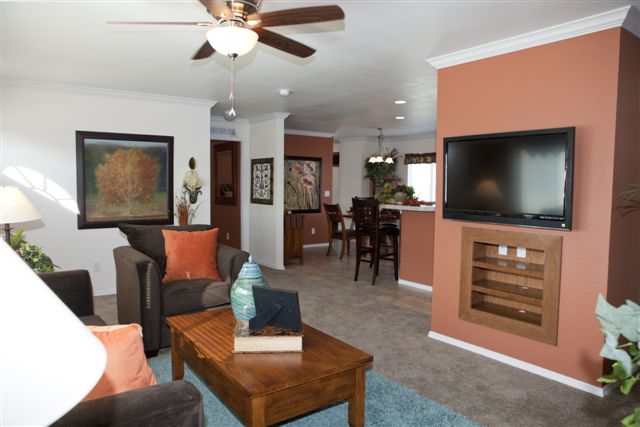A Manufactured Home is a Quality-Built Home
Why does a perception still persist that manufactured homes are the same as trailers? Hopefully you have already discovered for yourself that this is not the case. But if you have any lingering doubts about what constitutes a manufactured home, let’s clear up any confusion.

1. A Manufactured Home and a Mobile Home Are Not the Same
“Mobile home” is typically another term used for trailer homes, a reference to their ability to be hitched to a vehicle and move from place to place. A manufactured home refers specifically to a home that is built in a controlled factory environment rather than on site. While it is possible to move one of these homes after it has been transported to a foundation, 90% of today’s manufactured homes never move from their original site.
2. Manufactured Homes are Built to Exacting Standards
The HUD Code is a set of stringent guidelines that regulates the construction of Manufactured Homes. They are built with the same materials as many site-built homes, but HUD Code regulations also require them to meet quality standards in strength and durability, energy efficiency, heating, plumbing, air-conditioning, thermal systems and electrical systems. An inspection process at every step during construction verifies that each home built meets these criteria.
3. In Some Ways, Manufactured Homes are Built Better Than Site-Built Homes
When a home is built in climate-controlled factory conditions, it can be completed without worries over weather-related damage that can delay completion or warp building material components. All technicians and craftsmen are professionally supervised throughout the project, which isn’t always possible with site-built construction.
4. Manufactured Homes are Covered by Warranty
While warranties vary by manufacturer, most builders provide the same type of assurances that buyers would find with site-built homes: a 1-5 years guarantee on overall quality and workmanship, as well as major components such as heating and cooling systems.
Just like trailers? Not anymore.

